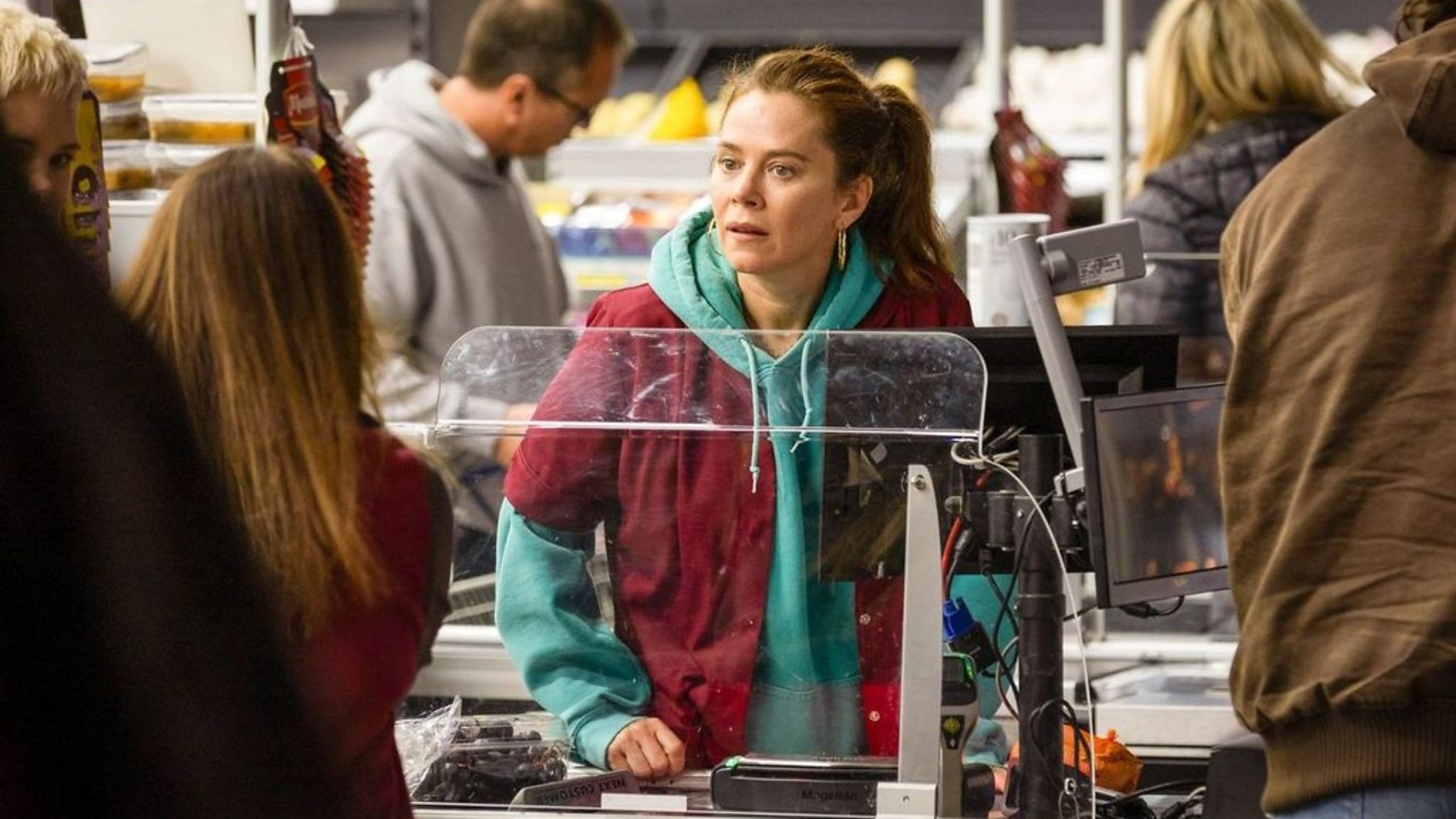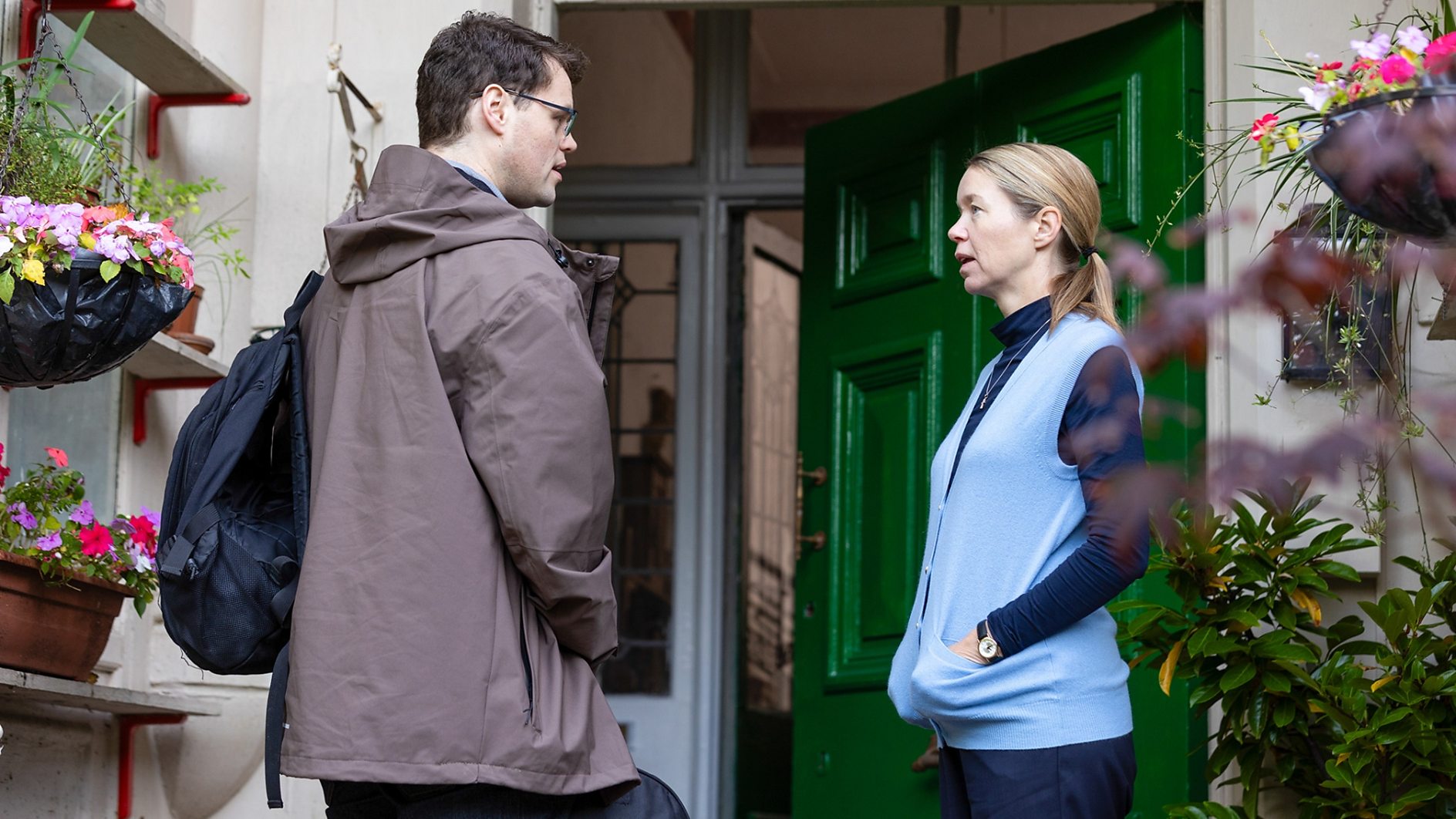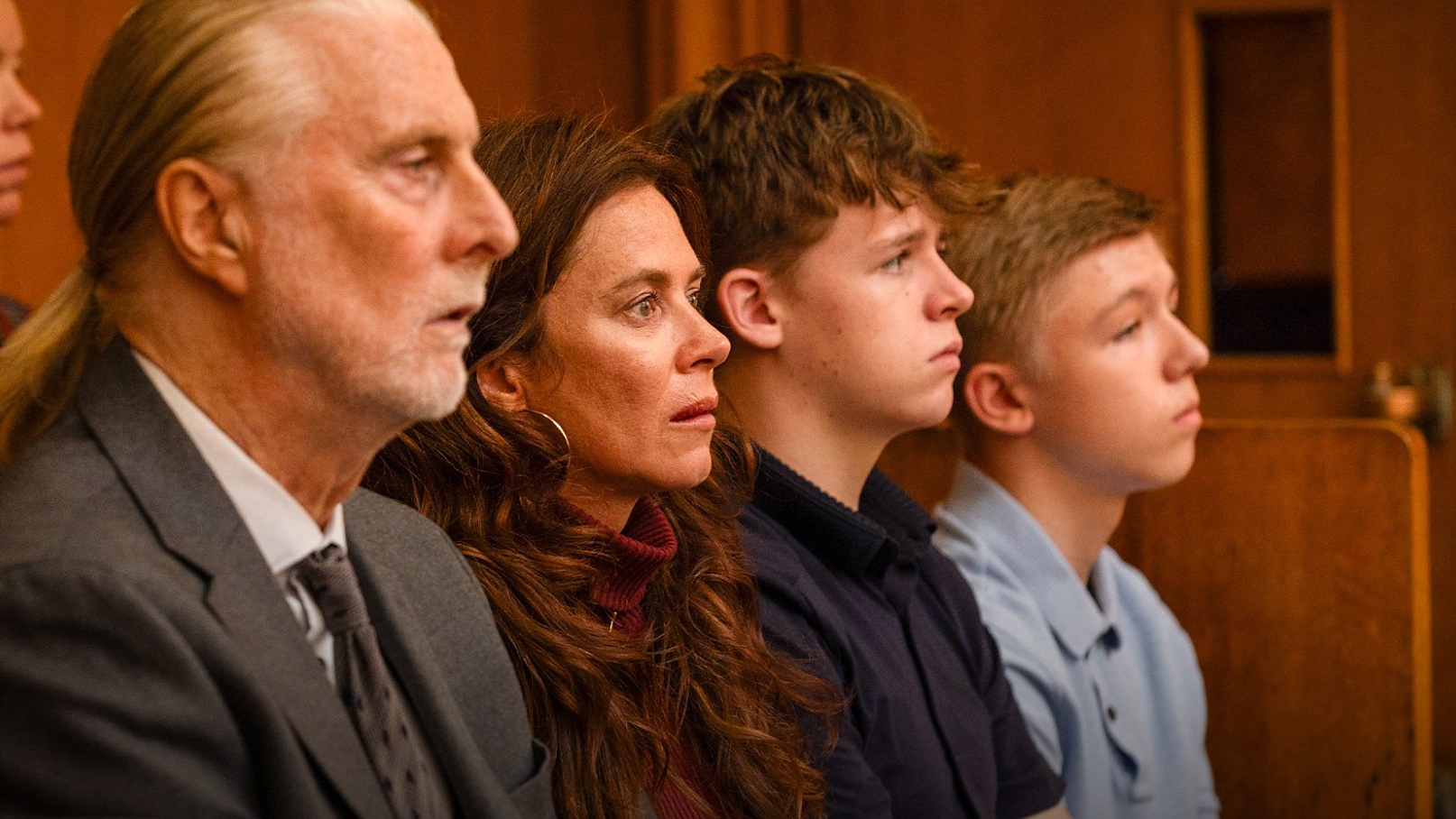What Unforgivable teaches us about trauma and forgiveness
Jimmy McGovern’s powerful feature-length drama is not only a masterclass in acting, but it also makes us question our own ability to forgive


Jimmy McGovern is not a man to shy away from difficult subjects. Throughout his career, the Liverpudlian screenwriter has focused on the more troubled aspects of society, including the care system (Care), disability (Go Now), and violence (Time). Most recently, in Unforgivable, he explores the trauma caused by child sexual abuse.
But Unforgivable is more than the story of Tom, a young teenage boy abused by his much-loved and trusted uncle. It charts the fallout for Tom’s family: Anna, his mother and sister of Joe (in a perfectly-pitched performance from Anna Friel); his dad, brother and grandparents; plus, in a typically bold move from McGovern, Tom’s abuser, Joe. In fact, Unforgivable is as much about Joe’s trauma as it is Tom’s. While this may be deemed controversial by some, what unfolds is an unflinching portrait of how family and generational trauma make victims of everyone.
"One of the most striking messages in Unforgivable is that trauma is never just one person’s story – it ripples across relationships, generations, and time," says Cai Graham, a trauma-informed wellbeing coach. “It shows that family fractures after abuse are rarely clean or straightforward and that, for the wider family, the impact of trauma can show up as tension, resentment, and a quiet but constant undertow of grief. Love and grief, anger and loyalty, guilt and protection live side by side, and that’s what makes these situations so painful.”
As John Donne inferred in his poem No Man is an Island, we are all connected – we don’t exist in isolation, and neither does trauma. The grief, guilt, and betrayal that affects one family member can also be felt by other members. What happens to Tom in Unforgivable becomes shared trauma.

That’s not to say that McGovern undermines Tom’s ordeal – far from it. The stark irony is that, because of the current (and very real) demand for child mental health services, Joe, who’s fresh out of prison and living in a halfway house for sex offenders, gets more access to therapy than his victim (he also gets beaten up, verbally abused and ostracised). Witnessing a paedophile explain himself makes for uncomfortable viewing, but what’s relevant here is that Unforgivable doesn’t shy away from posing problematic questions. Like the hit show Adolescence, it asks: if we don’t understand the perpetrators, how can we truly help the victims?
Joe is placed under the watchful eye of Katherine, played with stoic steeliness by Anna Maxwell-Martin. A former nun, she has worries of her own. It’s Katherine – not his family, who are still reeling from his actions – who helps Joe come to terms with his transgression and recognise the possible source of his abusive behaviour. Yet, although Unforgivable is primarily about what Joe does to Tom, what becomes apparent is how women are instrumental in managing the trauma of those around them. There’s Tom’s mum, Anna, who is trying to keep her fractured family together after her feckless husband leaves; Katherine, who is Joe’s spiritual and moral guide and (to some extent) his rescuer; and Anna and Joe’s dead mother who, while only shown in flashback, is a beacon of forgiveness not only for her son but her husband Brian.

You may not be surprised by this. Traditionally, women are known for carrying a family’s emotional load. Women are the ones who tend to ‘keep the peace’ or ‘hold it together’; women are (usually) the ones who don’t leave but stay to pick up the pieces, even if this is at great personal cost to their wellbeing; and women are expected to forgive more than men, because it’s what women do or have been taught to do.
Sign up to our free daily email for the latest royal and entertainment news, interesting opinion, expert advice on styling and beauty trends, and no-nonsense guides to the health and wellness questions you want answered.
What Unforgivable asks of the people watching is to consider their own relationship with – and capacity for – forgiveness. But it also makes it clear that it’s a personal choice and we are not bad people if we don’t feel inclined, or able, to absolve others. “Forgiveness is often spoken about as if it’s a single decision, a one-off moment of letting go,” says Cai. “But, in reality, it’s a layered, deeply personal process that can take months, years, or even a lifetime.” Neither is it always the healthiest or most empowering path, adds Cai – for victims of trauma in particular, she adds, the pressure to forgive can sometimes feel like yet another violation.
If we find it in ourselves to forgive, is it because we’ve accepted that person’s actions – however heinous – or do we do it so that we don’t have to hold onto that burden anymore? Is forgiving an act of love, or is it an act of martyrdom? “At its core, forgiveness isn’t about excusing what happened. It’s not about pretending everything’s fine or allowing someone back into your life, it’s about releasing yourself from the grip of anger, pain, and resentment,” continues Cai. “Forgiveness doesn’t mean erasing the past; it means choosing not to let the past continue to hurt you.”
Loving someone who has done you or your loved ones a grave disservice creates a cognitive dissonance that can be exhausting to live with, but this doesn’t mean that forgiveness is the only way out. Anna struggles to forgive her brother, and although it’s left open-ended, there’s the impression that she never will (though she does reluctantly support him in some way). Yet Joe’s victim, Tom, shows concern for his abuser. “What one person may feel ready for, another may never choose, and both deserve respect,” says Cai. “Real healing happens when we allow space for those differences, without pressure or judgement.”
Perhaps this is why Unforgivable has been critically acclaimed and why it resonated so much with viewers, because it forces us to think about what we would do if we were in the same boat.
How to navigate family trauma
If you’ve been affected by family trauma, here are some ways to help you cope, says Helen Wells, trauma practitioner and Clinical Director at The Dawn Rehab.
- The cultural narrative of ‘family first’ can be harmful when it prioritises maintaining relationships over personal safety and mental health, but it’s acceptable to establish boundaries or walk away from a family member for your wellbeing.
- Healing can occur without reconciling with the perpetrator. Recovery focuses on processing trauma, rebuilding a sense of safety, developing healthy relationships, and creating meaning from the experience.
- Reconciliation requires genuine accountability, changed behaviour, and mutual willingness – conditions that often don’t exist. Healing, however, is an individual process that you can pursue regardless of the perpetrator’s actions or presence in your life.
- Forgetting prevents learning from experience and maintaining appropriate boundaries, while healthy forgiveness involves remembering. True forgiveness involves releasing the desire for revenge while maintaining awareness of what happened. This allows for informed decision-making about future interactions, while memory serves as protection and helps prevent repeated harm.
- Individual therapy, family therapy with willing members, support groups, developing new support networks, engaging in meaningful activities, and sometimes spiritual practices can help you grieve losses and rebuild your identity beyond trauma.
Debra Waters is an experienced online editor and lifestyle writer with a focus on health, wellbeing, food and parenting. Currently, she writes for Woman&Home, NOON, and Psychology Now. Previously, Debra was digital food editor at delicious magazine and MSN. She’s written for Everyday Health, Great British Chefs, loveFOOD, M&S Food, Time Out, The Big Issue, The Telegraph, What to Expect, Woman and Woman’s Own. Debra is also an essayist and short story writer.
You must confirm your public display name before commenting
Please logout and then login again, you will then be prompted to enter your display name.

